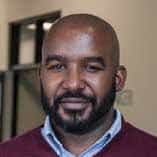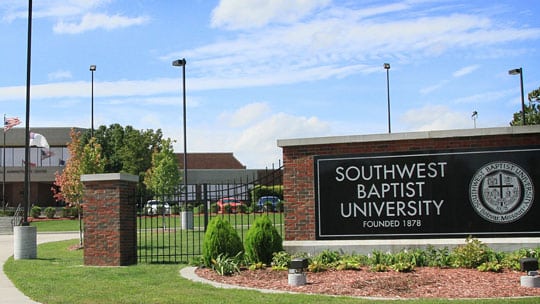In the gospels, Jesus had to regularly contend with what people thought of him and the people that regularly surrounded him. Whether it was fishermen, tax collectors or the sick, the religious elite wondered why he preferred being around the wrong people. In Luke 7:36-50, Jesus deals with this head on during a meal at the home of Simon the Pharisee.
 Terrell CarterOne of the customs of the day was that when an influential leader or teacher came to your home, you left the door open and allowed people to come in and hear what was that person was saying. On cue, people did come through the door to hear what Jesus was saying, including a woman who is described only as a sinner.
Terrell CarterOne of the customs of the day was that when an influential leader or teacher came to your home, you left the door open and allowed people to come in and hear what was that person was saying. On cue, people did come through the door to hear what Jesus was saying, including a woman who is described only as a sinner.
During Jesus’s day, you could be classified as a sinner even if there was evidence to the contrary. If your life circumstances were less than perfect or something especially bad happened to you, people would attribute your bad fortune to a hidden sin in your life. So, this woman may or may not be an actual sinner.
After entering the residence, the woman uses her hair, her tears and a bottle of expensive perfume to clean Jesus’s dusty feet. This is a simultaneously a humiliating and scandalous act that any righteous person could not overlook. Simon, the most righteous person present, is appalled at both the woman for her actions and Jesus for letting her touch him.
Aware of Simon’s thoughts, Jesus asks him, “Who do you think appreciates it more when their sin is forgiven? Someone who is forgiven a little or a lot?” Simon says, “The person that has been forgiven for a lot.”
Jesus agrees with Simon and reminds him that he forgot to engage in the simplest graces typically exhibited by a dinner host: offering to wash a guest’s feet. Jesus said, “This woman not only cleaned my feet. She hasn’t stopped kissing them since she arrived. The true embarrassment isn’t in her actions, but in the attitude that you have towards her and towards me.” The passage ends with Jesus pronouncing the unilateral forgiveness of the woman’s sins, whatever they may be.
I have to acknowledge that I see some of Simon in me. And I can imagine that you do, too. We are sometimes quick to pass judgment on others because their life circumstances are not as stellar as ours. Rev. David Sellery says, “For all of us, there is a certain, secret satisfaction knowing that there is a bigger sinner (someone who isn’t as good as us), somewhere … down the street, around the corner or at the next desk.” I forget that God calls even “them” beloved.
We can acknowledge that the sinner or the person that is typically unworthy to be in our presence is usually the person who we think is different from us. Typically, a person who isn’t as “righteous” as we are. A person whose life doesn’t exhibit the same qualities or accomplishments as ours. The words of Rev. John Marten quickly bring us back to reality: “No matter how worthy we consider ourselves, (or how unworthy we consider others) God sees all of us as we are.” That is, as people who have been forgiven for a lot and who have a lot to be thankful for.
It was easy for Simon to invite Jesus into his home for dinner. Jesus was the rock star rabbi of the time. Everyone would want to come to Simon’s home to share in this meal with Jesus. Simon would be a local celebrity if he played this meal right. Jesus was the right person to invite over for dinner. The one thing that Simon probably didn’t want to happen that night was for the wrong person to walk through the door.
The hard thing for righteous people like us to do is to invite those who are different from us into our world or for us to ask them to allow us to enter their worlds. This is what Jesus did. He met people where they were, regardless of what it did to his reputation. This is a worthy example for all of us to seek to follow.
Terrell Carter is assistant professor and director of contextualized learning at Central Baptist Theological Seminary in Shawnee, Kan., and pastor of Webster Groves Baptist Church in Webster Groves, Mo.


